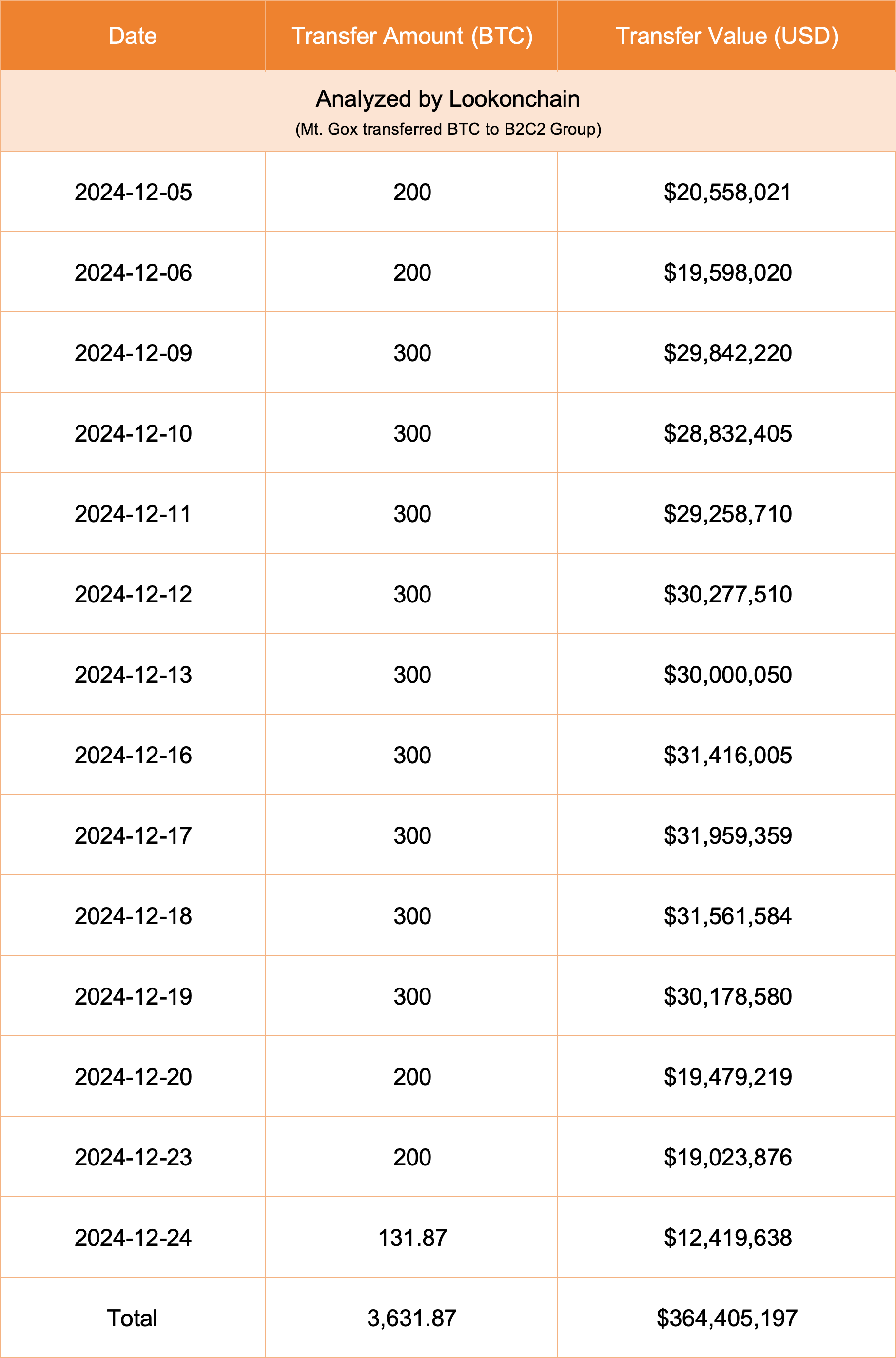The ghost of Mt. Gox is back, and this time it’s moving mountains of Bitcoins. The long-defunct crypto exchange has transferred 3,631.87 Bitcoins—worth $364 million—to market maker B2C2 Group.
Since December 5, Mt. Gox has been methodically sending between 200 and 300 BTC each working day.

Bitcoin’s holiday blues
While Mt. Gox is busy moving Bitcoins, the market itself is caught in a downward spiral. Bitcoin’s price tanked to $92,442 on December 23, the lowest it’s been in four weeks. That’s a brutal 14.5% drop from its all-time high of $108,000 just days earlier, on December 17.
If you were hoping for a rebound, don’t hold your breath. Bitcoin briefly recovered to $95,000, only to slide back to $94,000 during early trading on Christmas Eve. It’s been a rough week, with the coin down over 11%.
Let’s talk about the so-called “Santa Claus rally.” Historically, crypto investors have counted on a holiday surge during the last five trading days of December through the first two of January.
But December’s slump has left any hopes of a rally in the dust, dashing dreams of the festive gains we’ve seen in bull markets of the past.

Between 2014 and 2023, the crypto market staged post-Christmas rallies 8 out of 10 times. Market capitalization gains ranged from modest bumps of 0.69% to impressive jumps of 11.87%.
The pre-Christmas rally? Not so reliable.
In those same years, data shows that only five December lead-ups delivered gains. The biggest pre-Christmas rally happened in 2016, with an 11.56% increase. The worst? 2017, when the market collapsed by 12.12%, thanks to the ICO boom-and-bust chaos.
Crypto’s love-hate relationship with December
The so-called “Santa Claus effect” in crypto is like flipping a coin. Sometimes you win big, sometimes you don’t. Over the last decade, December has given us both incredible rallies and painful crashes. In five of those years, total market capitalization surged between 16.08% and 94.19%.
In the other five, December delivered pullbacks ranging from 1.73% to 15.56%. It’s a volatile season for traders, to say the least.
Bitcoin has delivered holiday miracles in seven of the last 10 years, with pre-Christmas gains ranging from 0.20% to 13.19%. But when it’s bad, it’s really bad. Take 2017, when Bitcoin nosedived by 21.30% in the week before Christmas.
And while post-Christmas rallies are less frequent, they can still be powerful. The largest? A 10.86% surge in 2020. The smallest? A 0.33% nudge in 2018.
Bitcoin’s average December performance outshines its specific holiday-week rallies, with an average return of 9.48%. That’s at least seven times more than the gains seen during pre- and post-Christmas trades combined.
But don’t let these numbers fool you into thinking there’s a pattern. Bitcoin’s December movements are as unpredictable as they come.
From Zero to Web3 Pro: Your 90-Day Career Launch Plan










